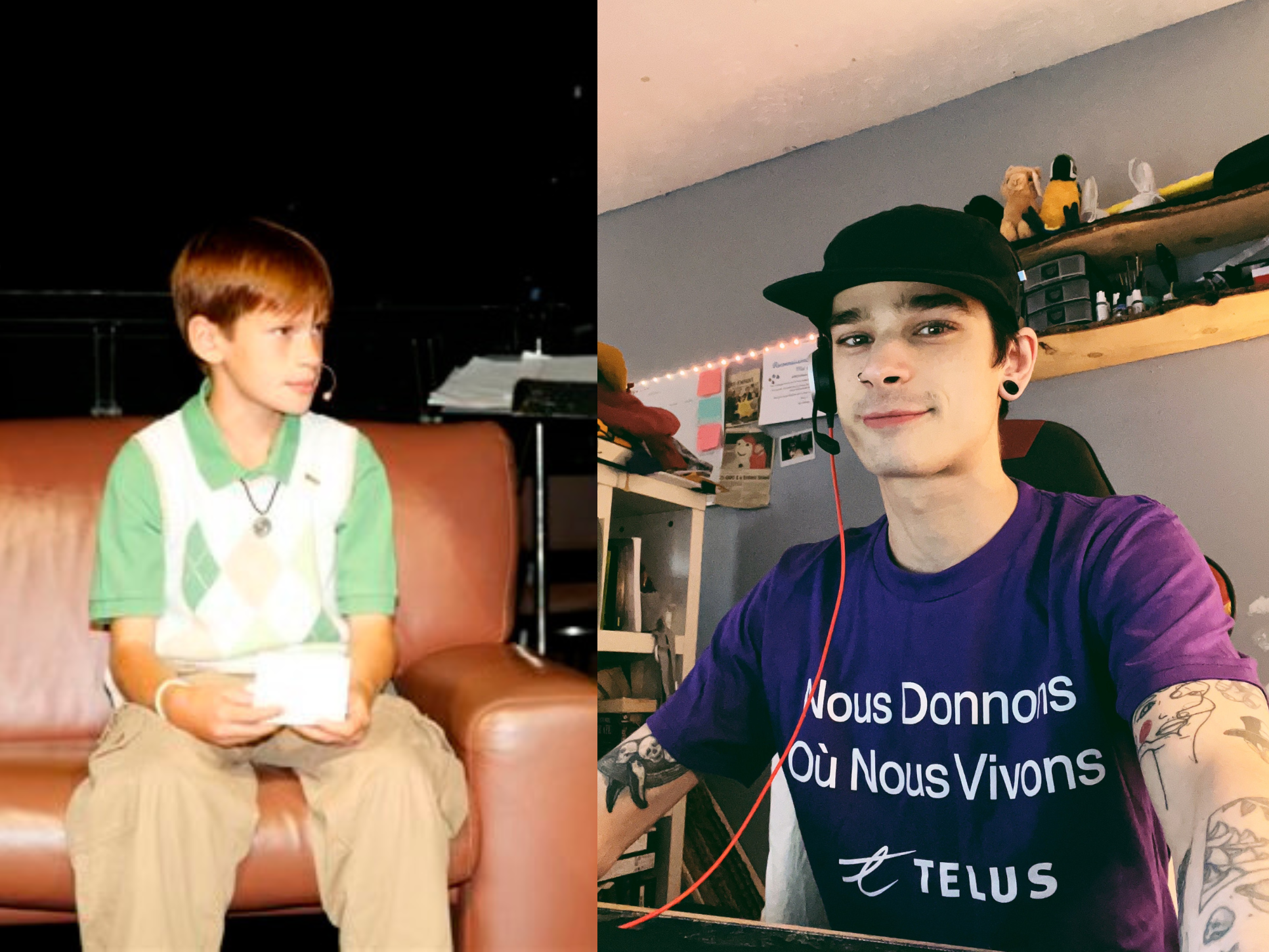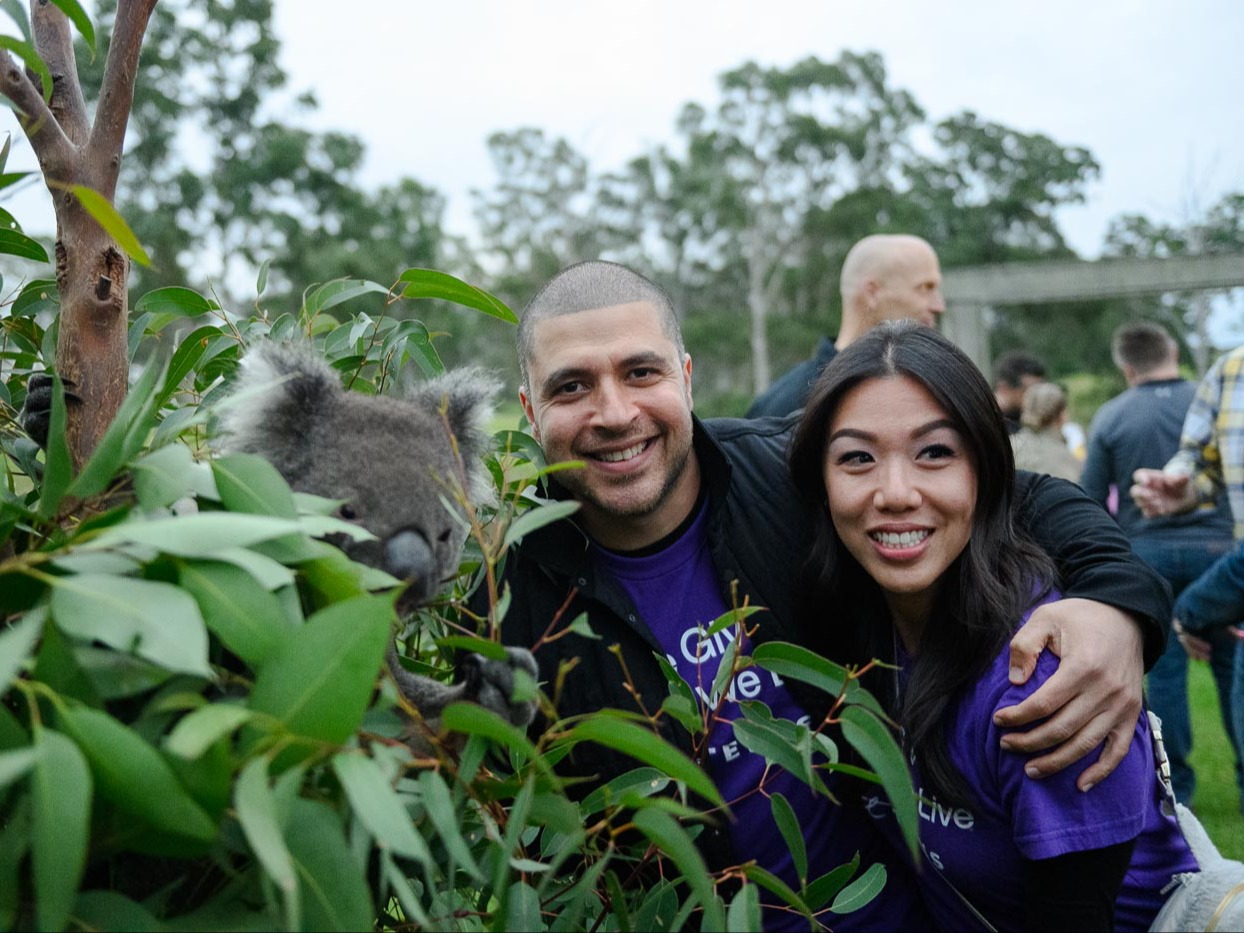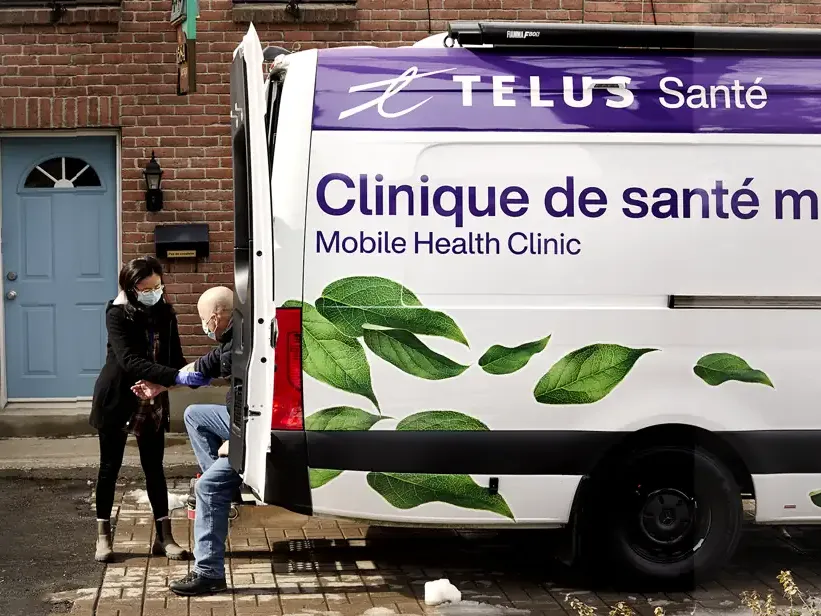
Giving back
This Carleton student is breaking barriers for children in care
Mar 11, 2024
As a third-year university student, with the aim of achieving a PhD, Clementine Jarrett overcame incredible odds in the foster-care system. Now, with support from the TELUS Student Bursary, she's paying it forward.
Clementine Jarrett, now in her third undergraduate year at Carleton University, is the embodiment of success and resilience in the face of enormous challenges.
Surrounded by violence and the continuous threat of physical and psychological abuse throughout her early childhood, Jarrett, 19, has overcome incredible odds on the long road toward her goal of using her education and experience to help others. Her ultimate goal is to attain a PhD and radically transform the child welfare system – helping better enable the safety and dignity of children in care and ensure the next generation has a different experience than she did.
“I was born in a really dangerous neighbourhood in the northwestern end of Toronto and was exposed to violence very early on,” she says. “We called it ‘the jungle’ because there was so much crime there. I have a clear memory of someone getting shot right behind our housing unit when I was about six.”
In October, TELUS Friendly Future Foundation launched the TELUS Student Bursary to support Canadian youth in situations similar to those like Jarrett. The $50-million fund, created through a $25-million endowment from TELUS and another $25-million fundraising commitment from the Foundation, is the largest national student bursary fund in Canada.
As a TELUS Student Bursary recipient, Jarrett received $5,000 to cover her tuition and help her with the financial burden associated with post-secondary education, which also includes books, housing and food costs. She is one of 400 students across the country awarded a bursary this year. TELUS Friendly Future Foundation also gives additional support to bursary recipients by offering
free mobility and low-cost internet plans
during school and after graduation, as well as mentoring, networking and other career development opportunities.All recipients are accepted into or attending a college or university program at a Canadian post-secondary institution — and actively making efforts to give back to their communities in positive ways, a key criterion of the program.
“It’s our way of affirming that we believe in the boundless potential of our youth, which includes the power to change the world for the better,” says Nimmi Kanji, executive director of TELUS Friendly Future Foundation.
Fuelling dreams
Going to university was always a dream, but far from guaranteed for Jarrett. Growing up, she and her siblings faced extreme financial hardship as well as violence at home. Her time in the foster-care system, however, did not mean that she had escaped hardship or abuse. Soon after being placed in care, the siblings were separated; over the next 10 years, Jarrett was moved to several different foster homes, many of them unsafe.
“I had to become self-sufficient really early on. I’ve gotten used to it, but it’s really hard being completely alone and having to support yourself,” she says.
Despite the hardship, Jarrett remained focused on her education. She is now pursuing a double major in human rights and social justice and women and gender studies – a goal she is actively achieving with a near-perfect GPA. She is also a member of the TELUS Ottawa and Eastern Ontario Community Board, helping to support local charities through grants of up to $20,000, and involved in investigating Canada’s implementation of the United Nations Convention on the Rights of the Child.
“Going to university was always my guiding star. Education would put me in a position to help other children and prevent them from going through what happened to me,” she says.
Inflation and the costs associated with post-secondary education, however, have made the journey challenging. Recent reports indicate that
75% of students
find it very hard to afford post-secondary education and nearly one-in-three
have considered withdrawing from their studies due to financial difficulty.The situation is even harder for young people coming from the foster-care system, with
statistics
indicating that only eight out of every 1,000 students complete their degrees.It’s why the TELUS Student Bursary was created. “We believe that all youth in Canada deserve the opportunity to reach their full potential,” says Kanji. “The bursary program will support hundreds of students each year, removing barriers to accessing education while empowering them to pursue their dreams and ultimately, help create a better world.”
She notes the bursary’s dual objective of helping to relieve financial stress for recipients and supporting them in their goal of giving back to their communities.
For Jarrett, receiving financial support from organizations like TELUS Friendly Future Foundation “is one of the major reasons I’m still in school.
“As someone of low income, I’ve had to sign up for a number of bursaries to support my education,” she says. “What really stuck out for me about the TELUS Student Bursary was that they inquired about participation in the community and asked us to devise a social impact project. It made me feel that not only did they care about supporting the individual receiving the bursary, but they also cared about supporting the community to be served.
“I really appreciated the trickle-down effect. Receiving the TELUS Student Bursary has been a beautiful experience so far. I’ve never felt so supported and valued or had a better experience.”
The next TELUS Student Bursary application window opens in spring 2024. For further information, visit
www.friendlyfuture.com/bursary
.

